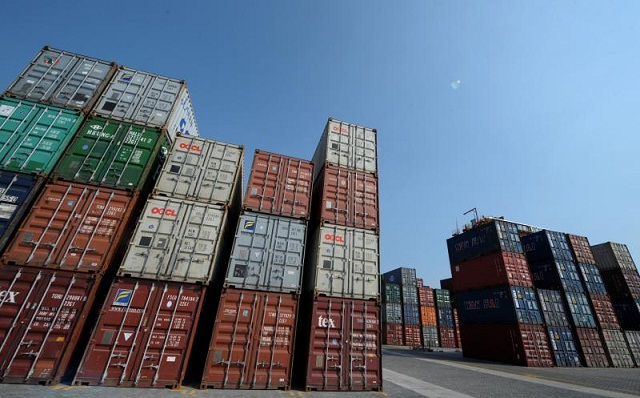CAIRO: Egypt’s tourism fell 35 percent during the second quarter of 2011 compared to the same period last year, the tourism ministry confirmed.
A total of 2.2 million tourists visited the country during the quarter, 42 percent came from Western Europe, 27 percent from Eastern Europe and 17.7 percent were Middle Eastern, according to a report by the Central Agency for Public Mobilization and Statistics (CAPMAS).
The number of Eastern European tourists, who make up a large amount of Egypt’s tourist base, dropped 46 percent. Moreover, the number of Western European tourists fell 35 percent.
In order to alleviate effects that the recent political turmoil has had on the sector, the tourism ministry engaged in several global campaigns to encourage visitors to come to Egypt — mostly by reassuring tourists that the country is now safe.
“We are currently doing several public relations and media campaigns, providing incentives for charter flights, facilitating visa regulations, as well as collaborating with local hotels to provide packages for visitors,” said Omayma El-Husseini, the ministry’s spokesperson.
Today, the ministry is cooperating with several nations in order to allow their visitors to obtain visas upon arrival in the airport. The latest among these was Kazakhstan, whose nationals can now visit Egypt without having to apply for visas at their local consulate or embassy.
The only step the ministry has not resorted to is asking hotels or venues to reduce their prices, because it would take another five to six years for hotel prices to be readjusted, El-Hussieni pointed out.
The ministry this week contended a Cabinet decision that would have required all visitors, regardless of their nationalities, to obtain visas prior to their arrival in Egypt. The proposed policy was frozen after being agreed upon last week by Cabinet.
Currently, visitors from the United States, Europe, Australia, the Gulf Counties, Africa, Asia, and Latin America can get their visas when they arrive in Egypt at the airport.
According to Elhamy ElZayat, head of the Egyptian Tourism Federation, current attempts to alleviate the tourism crisis are just temporary cures that can only go so far.
Tourism will bounce back in Egypt when there is stability so people visiting can feel safe — and this, of course, takes time, he said.
“Forget that there will be tourism if there is no stability in the country, when the ministry says return of tourists, the tourists that come today just come for incentives that are being offered at this time,” he said, adding that the tourism sector is not where it needs to be and its not going to return until stability returns
Tourism, one of Egypt’s main foreign currency generators, took a hit after the January uprising that led to the ouster of Hosni Mubarak. Revenues in the financial year 2010-11 were $10.6 billion compared to $11.6 billion in 2009-10.
It’s not just the quantity of tourists that matter, ElZayat said, but how much they are spending. “Today, the tourist that comes spends very little.”
“There are some positive steps, but it won’t compensate for the losses. The ministry’s campaigns can help and make the figures look a little bit better,” he added. “I have told the ministry this as well, only stability and calmness will really bring our tourism where it needs to be”
However, ElZayat did point out the number of tourists the country managed to attract these days in a post-revolution economy is passable.
“It’s better than nothing,” he said. “We do have some tourists, but they only stick to certain places; right now for example, Luxor and Aswan are really suffering badly.”
When it comes to families who reside in cities like Luxor and Aswan, which are located in the southern part of Egypt, tourism is often their main, if not only, source of income.
Last month, on Egypt’s shared border with Israel in Sinai, clashes that caused the death of six Egyptian security personnel when Israeli troops repelled gunmen following an attack near Israel’s Red Sea resort of Eilat, also affected tourism.
It especially impacted local tourists because it happened right when Eid El-Fitr was approaching, a time when many Egyptians like to take off to spend in the Red Sea.
ElZayat added that only some parts of the Red Sea are faring well, like Sharm El-Sheikh and Hurghada, for example, but Marsa Alam, located in the southeastern part, is also suffering.



